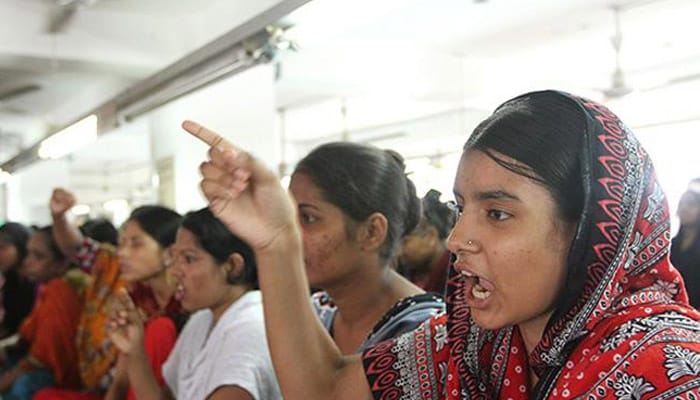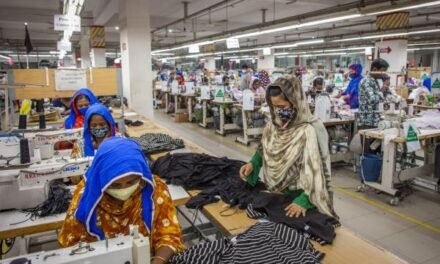Trade union leaders and an apparel sector expert said that the wages they receive are insufficient to cover the basic needs and living costs of workers. Weak negotiation skills and lack of pressure from the trade unions and federation have deprived Ready Made Garment (RMG) workers from receiving the demanded minimum wage. On September 13, amid the workers’ demand of Tk 12,000 as minimum wage, the government set the minimum wage to Tk 8,000 per month. The trade union leaders and an apparel sector expert said that this wage is insufficient to cover the basic needs and living costs of the workers.
They blamed the weak negotiation skills on the part of the workers’ representatives and failure of trade unions in pressurizing the owners to reach a win-win situation in setting the minimum wage. “I was helpless as a workers’ representative on the board. The owners were adamant with their decision of Tk7,000 as minimum wage. The pressure of realizing the workers’ demands should have been created by the workers and trade unions,” workers’ representative Shamsunnahar Bhuiyan said. She added that the workers at factory level should have put more pressure on the wage board to realize the demand of Tk 12,000 as the minimum wage. “The number of workers who staged demonstrations in front of the wage board during the meetings was disappointing. There were not even 5,000 workers,” she added. “Negotiations for minimum wage this time were much weaker compared to last time. The workers’ representative should remain strong in their demands,” Centre for Policy Dialogue Research Director Khondaker Golam Moazzem said. Bangladesh Garment Manufacturers and Exporters Association (BGMEA) president represented the owners at the meetings and negotiations. He had other associates to assist him in handling the issue, said the analyst. On the other hand, the workers did not have an organised approach to negotiate the issue based on factual information, he added.
“I believe this is not true. In the previous years – 2006, 2010 and 2013, we had strong demonstrations,” said Nazma Akter, President of the Sommilito Garments Sromik Federation. “Did they increase the wage from Tk5000 to Tk10,000?” she questioned. Nazma Akter held a different opinion. She said that they held meetings with BGMEA countless times in the past, as had been made public through various media outlets. The fact that a trade union leader was affiliated with the government and did not make proper representation of the majority of workers was highly criticized.
“Many trade unions are also very fond of foreign operators and they are mostly affiliated with foreign companies. They are busy collecting funds in the name of NGOs,” added a trade union leader. He cited this as the reason for the failure to create pressure on the owners to meet the demands. Trade unions linked with political parties did not object to the decision of the government, nor did they take part in any demonstrations or any other activities to press for the raise in the minimum wage, he claimed. Refusing the allegation, Nazma said they are focusing on workers’ awareness on their rights and training them to be better skilled.






















